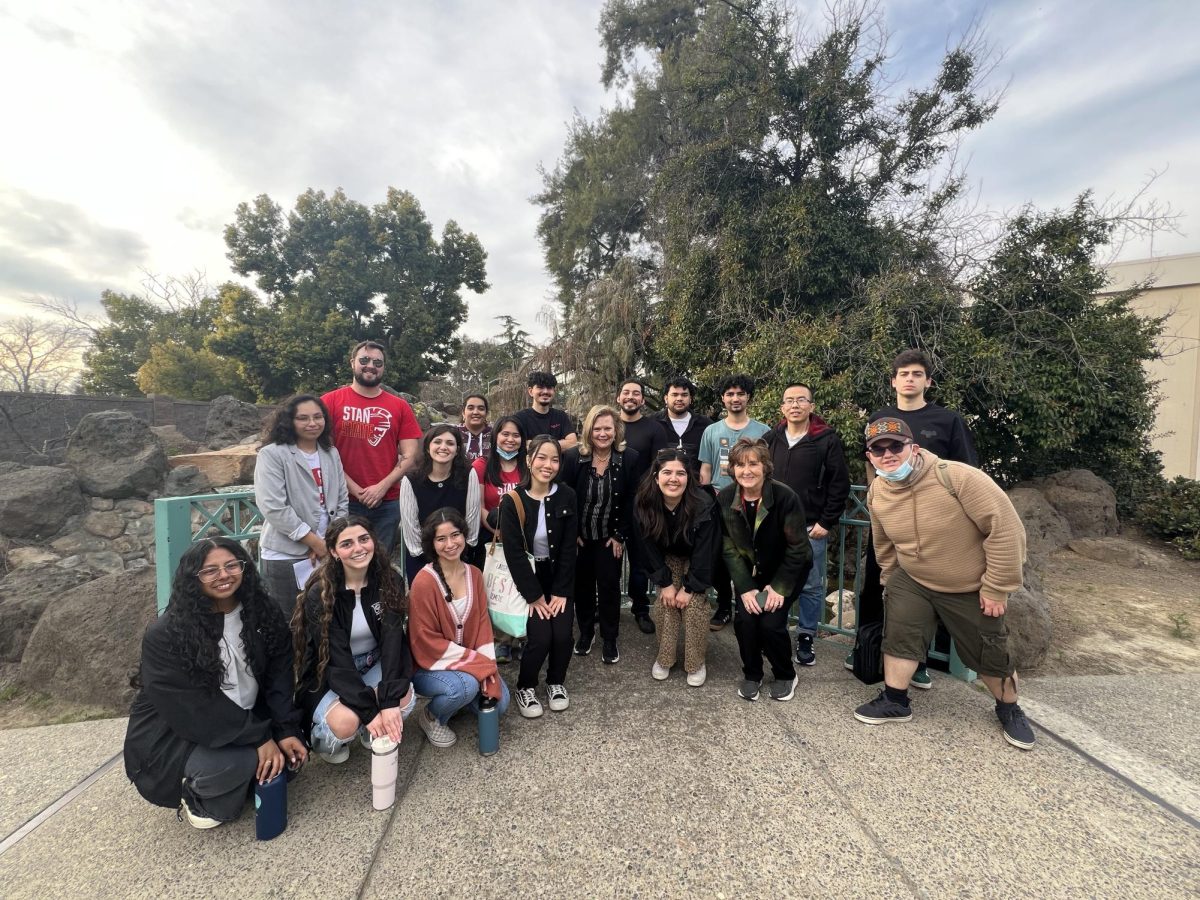Jesus Valdez is a recent graduate of Stan State who, like many, has been searching for a job. He visited a number of job search sites but found no postings relevant to his degree. Valdez remembered that Stan State has their very own job posting site, HireStanState.
As Valdez scrolled through the postings on HireStanState, he found one that stood out from the rest. A company called NetFusion was looking for help in their office. Valdez said that he only had to answer a few questions, and the next day he was given the job. His job was simple, but there was something about it that didn’t seem right.
“I got the job and was sent a check for $2,920. $400 was for me to keep while the rest was for weekly expenses.”
Valdez said that Harris told him to go to his bank, deposit it, and to take as much money as he could, which was $400 because of the bank’s deposit lock. “From then, Harris instructed me to go to any store and purchase as many $100 Amazon Gift Cards as I could and that’s what I did.”
The next day, Valdez’s bank sent him a notice that his account was locked and the check was a fraud.
“They [the bank] explained to me that they couldn’t do anything but felt bad. They said the good thing is because of the deposit lock, if I did get the money from the bank than I would’ve had to owe that $400 but it wouldn’t be the max of $3000,” said Valdez.
After his trip to the bank, Valdez went to Career Services to tell them what happened.
“I talked to them for about half an hour, they felt bad but couldn’t really do anything,” said Valdez, explaining that Career Services said they couldn’t delete the job, only push the application deadline closer so that the posting would be removed sooner. “They said they couldn’t fully delete the post because ‘they didn’t want to be accomplices to this scam,’ which I thought was weird but they said if they deleted it when they ‘would be in the wrong’ and they knew it.”
Julie Sedlemeyer, Director of the Career & Professional Development Center, said that when a student reports a scam, Career Services freezes the position description to do research and confirm fraud before pulling it off their website.
Sedlemeyer explained that positions on HireStanState’s site are outsourced by a third party company called Grad Leaders, who screens positions for potential scams. They are also screened by Rebecca Stephens, Career Specialist, before being posted to the site.
Some scammers manage to slip through the screening process and onto HireStanState by posing as legitimate businesses, said Sedlemeyer. “It looks like it’s a legitimate business, so they have copied a website address, they have copied an email, so it looks legitimate. This last one [Valdez’s scammer], they were really smart because you called and it was a legit business, but the person who said they worked there did not work there.”
“What happens is the employers can post something that looks correct, but then when the student contacts them they say, ‘oh, as part of your interview process I’m going to send you a check, I want you to process that check, buy some iTunes cards, take a picture of the back, and send them to me,'” Sedlemeyer said. These types of scams leave not only the student as a victim but the company whose identity has been stolen.
NetFusion is a legitimate business in Turlock, about a five minute drive from campus; they were unaware that their company’s identity had been stolen by scammers until Valdez came to them.
Valdez didn’t speak with the real NetFusion company until after he was scammed. “I talked to them [NetFusion] and said, ‘Hey are you guys hiring for this position?’ They said no,” said Valdez.
“They’re figuring out how to hack into an employer and create a recruiter account,” said Rebecca Stephens, who screens positions before they are posted to HireStanState. “It’s constantly evolving, so I’m constantly having to keep up with new trends.”
The HireStanState page contains a statement titled “Be a Smart Job Seeker and Avoid Online Fraud,” which reads, “If you decide to access linked third-party websites, you do so at your own risk” and absolves Career Services of any responsibility for or affiliation with material posted on third party websites.
Valdez said that this warning was not posted when he was scammed in early July; Career Services claims that it was added to the site when a different student got scammed last December. Valdez’s memory was correct; the Signal received confirmation from a staff member with access to the campus website’s backlog that the HireStanState site’s scam warning was last updated July 3, 2018.
After a conversation with one of his former professors, Valdez was advised to notify the University Police Department (UPD) of the scam.
Valdez was greeted by an unfamiliar officer who did not make his situation any easier. “She basically called me an idiot because after she saw the check and thought it was all for me, she said, ‘You get $2,920 a week and you didn’t think this was a scam? That’s more than I make in a week.’ After that, I didn’t go back for help from the UPD,” said Valdez.
According to UPD’s Sergeant Silveira, if Valdez had been scammed off campus, he would have been directed to that jurisdiction’s police department.
“If it occurred on campus, then we would have taken a report. It probably would have depended on where he was at the time he was using a computer to fill out his information. If he was at home, it would be the city where he lives,” said Silveira.
Discouraged and frustrated, Valdez didn’t know what to do or who he could talk to. Advisors told him that he should have looked closer at postings.
“The only reason why I didn’t do my proper research was that it [the posting] was through the school,” Valdez said. “I thought they were allowed on HireStanState because they were screened and verified. I talked to Career Services and they said ‘some do fall through the cracks’. They also said that they’ve known a few other scams for a few years.”
Sedlemeyer said that students should trust their gut when applying for positions online. “If you think it doesn’t feel right, contact us, and we’ll do research before you do it. If you’ve applied for a position and they ask you to do something like that before you do it come to talk to one of us, that would be my recommendation,” she said.
For students who have been a victim of these scams, Stan State’s Campus Cares program could potentially help them recoup some of their losses.
“The role of the emergency fund is not to make determinations on what type of life circumstance or event that results in a student being put in a state of need, but rather assist those in need,” said Matthew Lopez-Phillips, Vice President of Student Affairs.
Lopez-Phillips added that Student Affairs would “eventually like to make the emergency fund available” to alumni like Valdez.
To some, it may seem like common sense not to fall for these types of scams, but others have never been exposed to this type of crime. Valdez is a first-generation college student; when he told his mother about his new position she, like Valdez, was excited about his recent “employment”. They weren’t aware of the red flags that the hiring process had raised.
With the help of Career Services, Valdez found a part-time job at a real company doing work he’s interested in. His tips to other students are to “be diligent and not desperate for a job. Do your research on the company you’re applying for and get listings verified by someone you trust.”
Categories:
Stan State Alumnus Loses $400 to Scam Posted on HireStanState
0
Donate to Signal
Your donation will support the student journalists of California State University, Stanislaus. Your contribution will allow us to purchase equipment and cover our annual website hosting costs.
More to Discover



















